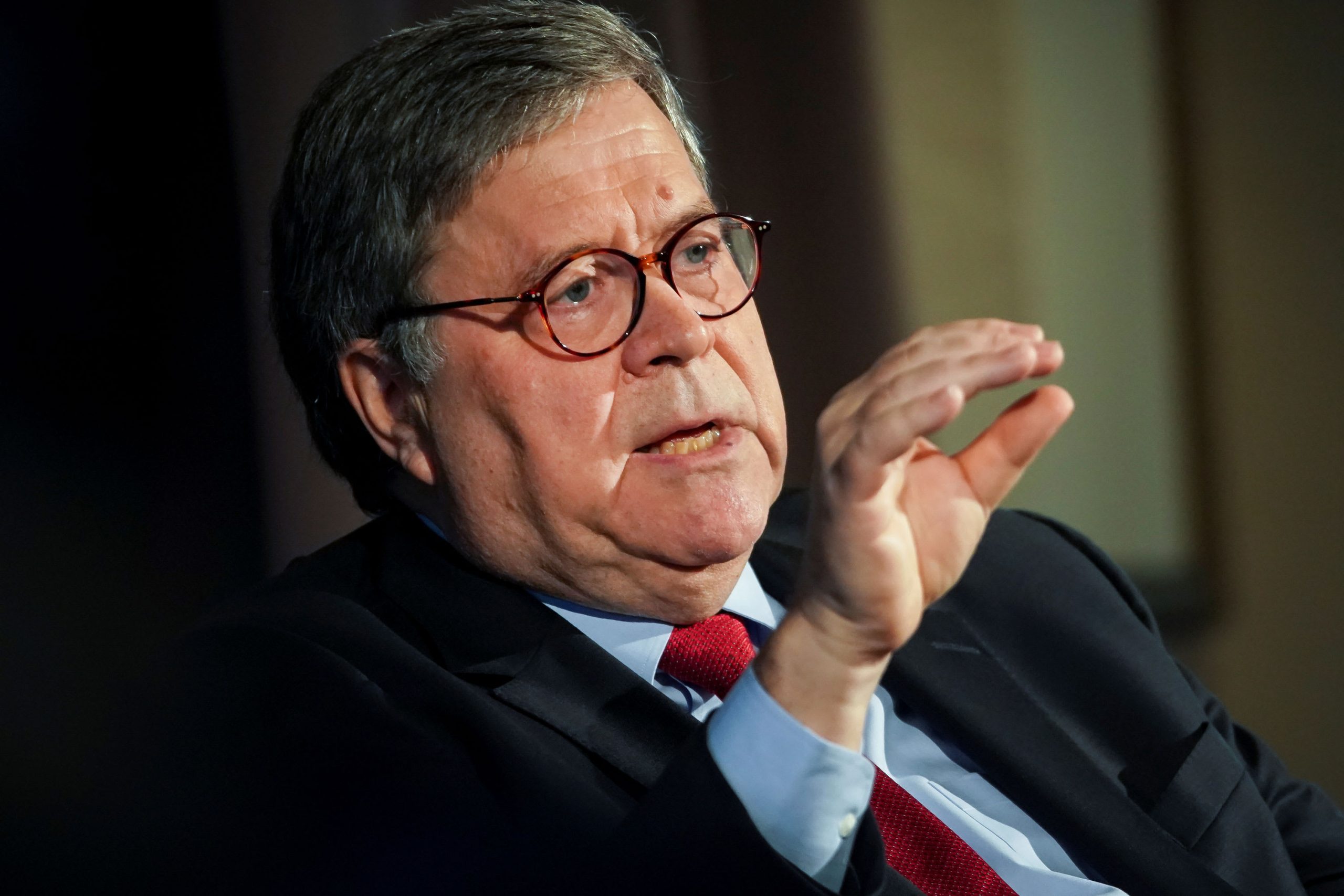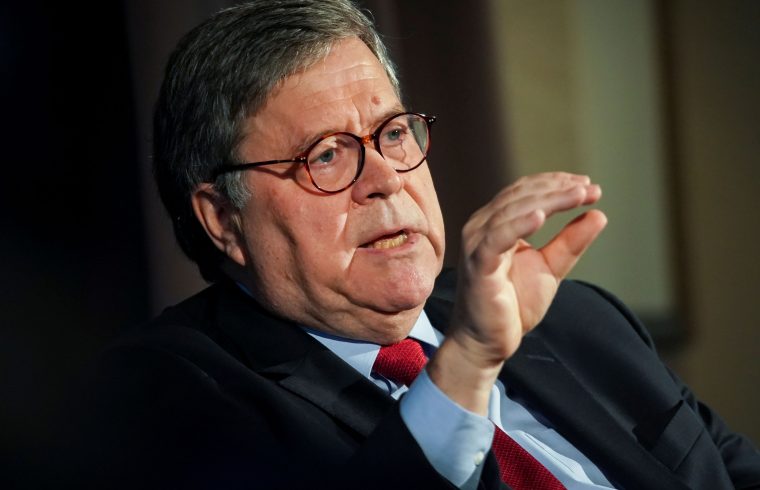
Attorney General William Barr speaks in Washington, December 10, 2019.
Al Drago | Reuters
The Department of Justice is taking aim at tech’s liability shield with a new set of legislative proposals released Wednesday.
The proposed reforms are the latest action aiming to weaken legal protection established through Section 230 of the Communications Decency Act, a 1990s-era law. The statute protects online platforms, such as Facebook, Twitter and Google‘s YouTube, from being held liable for content their users post on their sites, and also allows them to moderate content in good faith.
The DOJ’s proposed reforms, which would have to be passed by Congress to go into effect, would limit the broad protections Section 230 typically provides to the tech industry.
Platforms could lose immunity if they facilitate or solicit federal criminal activity, like trafficking illicit drugs. It would also create carve-outs for child exploitation, terrorism and cyberstalking, holding tech companies accountable for taking action on such content.
The proposal also would make clear that Section 230 protections cannot be used to dispute antitrust claims, a significant statement as the Justice Department is reportedly preparing an antitrust suit against Google for as soon as this summer. Facebook has also disclosed an antitrust investigation by the Federal Trade Commission.
“Changing significantly … the balance of responsibilities and provisions about liability in Section 230 would, in our view, mean less speech of all kinds appearing online,” said Nick Clegg, Facebook’s vice president of global affairs and communications, in a call with reporters on Wednesday afternoon.
It’s unclear how much support the proposals will gain in Congress. Both Republicans and Democrats have argued that Section 230, which was initially envisioned as a way to protect upstart tech companies from a deluge of lawsuits, now appears outdated as it protects powerful companies worth hundreds of billions of dollars.
But while Democratic concerns have focused more on holding companies accountable for keeping users safe, Republicans have also placed emphasis on alleged censorship of conservative voices. Tech companies have repeatedly denied that they censor political speech, but instances where they have removed posts in error have fueled such criticism.
Sen. Mark Warner, D-Va., a former venture capitalist and a frequent critic of Section 230, said in a statement to CNBC that he is wary of reforms brought by the Trump administration.
“While I believe reform of this outdated law is needed, I have serious concerns that under the supervision of Attorney General Barr this effort has been politicized and will be used by the Trump Administration to cow platforms into allowing Trump, dark money groups, and right-wing militias to continue to exploit their tools to sow disinformation, engage in targeted harassment, and suppress voter participation,” Warner said.
Earlier on Wednesday, Sen. Josh Hawley, R-Mo., another leading critic of Big Tech and Section 230, introduced a new bill that would require platforms to promise to act in good faith in their terms of service. That would open tech companies up to potential lawsuits from users claiming breaches of contract.
The move follows Trump’s executive order
Last month, President Donald Trump signed an executive order instructing the Federal Communications Commission to write rules regulating how social media companies can remove content from their sites while maintaining Section 230 immunity, and encouraging the Federal Trade Commission to take action against companies engaging in “deceptive” acts of communication.
At the time, Attorney General Bill Barr indicated the DOJ would seek to sue social media companies and said Section 230 “has been stretched way beyond its original intention.” Barr held a forum at the DOJ earlier this year, inviting experts to weigh in on potential reform of the law. He told a gathering of the National Association of Attorneys General in December that the department was “studying Section 230 and its scope.”
A White House spokesperson said in a statement that “President Trump is pleased to see the department following through” on legislation modeled after the executive order.
Without legislative reform, little is likely to change. Courts have consistently upheld Section 230 protections under current law. Bills aiming to amend the law have already drawn tremendous pushback from the tech industry, which claims that cracking down on Section 230 will ultimately stifle speech, since platforms will have to remove any content that might leave them open to legal repercussions.
The tech industry has also pointed out that Section 230 already allows tech companies to be held criminally liable for illegal activity. But the DOJ’s proposal would allow victims of online scams or child exploitation, for example, to pursue civil action against a platform if they believe the company had knowledge of the illegal activity and did not take steps to remove it.
Congress did successfully introduce reform to Section 230 in 2018 with the passage of FOSTA-SESTA. The pair of bills from the House and Senate aimed to crack down on online sex trafficking by creating a carve-out to Section 230 immunity for ads promoting sex work. While the bills gained wide support in Congress at the time, they have been criticized by sex worker advocates for making their livelihood less safe by removing websites where they would vet potential clients.
— CNBC’s Mary Catherine Wellons, Lauren Hirsch and Salvador Rodriguez contributed to this report.
WATCH: Justice Department to propose limiting online platform protections, WSJ reports







